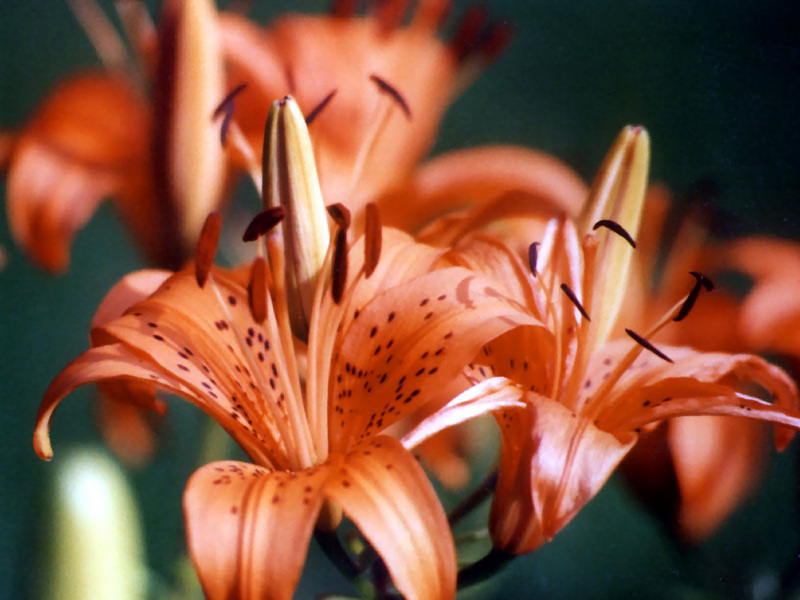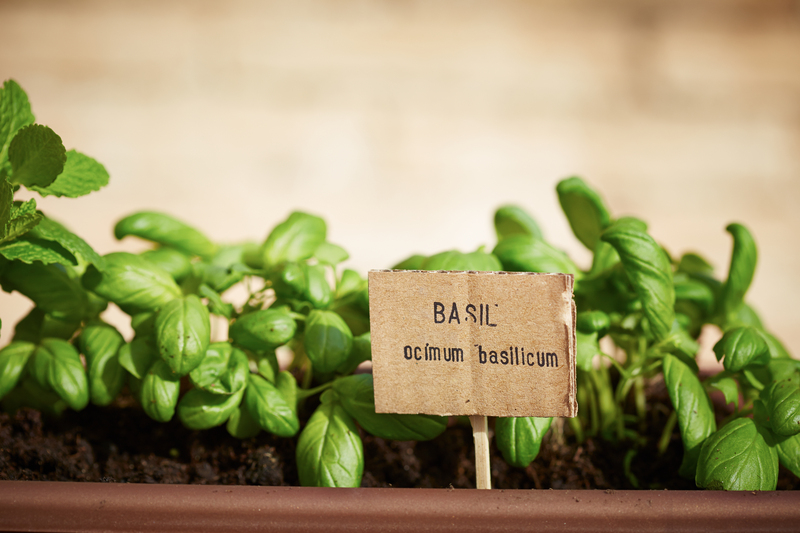Weed Battle Plan: Three Must-Know Tips
Posted on 22/06/2025
Weed Battle Plan: Three Must-Know Tips for a Weed-Free Garden
Are you tired of seeing pesky weeds take over your beautifully maintained garden or lawn? Winning the war against unwanted plants can seem endless, but with the right weed battle plan, you can reclaim your outdoor space. In this comprehensive guide, discover three must-know tips that will empower you with practical methods to prevent, control, and eliminate weeds effectively. Prepare to transform your landscape into the lush, inviting oasis you desire with our expert strategies!
Understanding Your Weedy Opponent: Why Weeds Thrive
Before launching your weed control campaign, it's essential to understand how and why weeds flourish. Weeds are opportunistic plants that take advantage of any weaknesses in your lawn or garden. They thrive in compacted soil, areas with bare spots, or where water and nutrients are easily accessible. Common weed species like dandelions, crabgrass, bindweed, and chickweed can quickly multiply if left unchecked.
- Weeds compete for resources: They deprive your preferred plants of sunlight, water, and nutrients.
- Rapid reproduction: Many weeds reproduce aggressively, spreading via seeds, roots, or runners.
- Adaptable growth: Most weed species adapt quickly to environmental stresses, making them resilient foes.

Three Must-Know Tips for a Successful Weed Battle Plan
The following tried-and-tested tips form the backbone of an effective weed management strategy. By implementing these, you can drastically reduce the presence of unwanted plants and maintain a cleaner, healthier landscape.
Tip 1: Prevent Weeds Before They Germinate with Smart Mulching
One of the most powerful tools in your weed control arsenal is mulching. Mulch not only enhances the aesthetic appeal of your beds but also serves as a formidable barrier against weed growth. This vital step in your weed battle plan targets unwanted seeds before they even begin to sprout.
- Suppresses sunlight: A thick layer of organic mulch blocks sunlight, stopping most weed seeds from germinating.
- Conserves soil moisture: Healthy plants out-compete weeds for water; mulch helps maintain this advantage.
- Improves soil health: Over time, organic mulches break down, enriching the soil and making it less hospitable to invasive weeds.
For best results, follow these mulching tips:
- Apply 2-3 inches of organic mulch (such as shredded bark, compost, wood chips, or straw) around your garden plants and shrubs.
- Keep mulch a few inches away from plant stems to prevent rot and diseases.
- Replenish mulch every season to maintain its effectiveness.
Mulch not only aids in weed suppression, but it also creates a healthier ecosystem in your garden. By denying weeds the light they need to grow, you dramatically decrease their numbers with minimal effort.
Tip 2: Develop a Consistent Weeding and Lawn Care Routine
Even with the best preventive measures, some weeds will inevitably break through. That's why a consistent hand-weeding and lawn care routine is central to any effective weed battle plan. Addressing young, small weeds is much easier than tackling them after they've matured and set seed.
- Hand-pull weeds regularly: Aim to weed at least once a week, especially during the growing season.
- Weed after rain or watering: Moist soil makes it easier to remove weeds, roots and all.
- Dispose of uprooted weeds in the trash, not your compost pile, especially if they have seeds or invasive roots.
- Mow lawns at the correct height: Taller grass shades the soil, inhibiting weed seed germination. Setting your mower blade too low weakens grass and invites weeds.
For garden beds, try using weeding tools like a hoe, trowel, or weeder fork to extract weeds thoroughly. Be sure to remove the entire root system--especially for stubborn perennials like dandelions--to prevent regrowth. For lawns, sharpen mower blades for a clean cut, and don't cut more than one-third of the grass blade at a time.
Building consistency into your weed battle plan ensures you catch problems early and keep weeds from establishing dominance in your landscape.
Tip 3: Use Targeted Weed Killers Responsibly for Persistent Infestations
Sometimes, despite your best efforts, certain weeds will resist manual removal and mulching. In these cases, judicious use of weed control products (herbicides) can deliver the knockout punch your yard needs. However, using weed killers wisely and safely is critical to protect your desirable plants, pets, and local wildlife.
-
Select the right herbicide:
- Pre-emergent herbicides work by preventing weed seeds from sprouting. Apply early in the season before weeds appear.
- Post-emergent herbicides target existing weeds. Choose between selective (kills only certain types, like broadleaf weeds) or non-selective (kills all vegetation).
- Follow the instructions exactly--over-application can harm the soil and your plants.
- Spot-treat problem areas instead of blanketing your whole yard to minimize chemical use.
- Apply on calm days to prevent spray from drifting onto prized plants.
Organic weed killers, such as vinegar or citrus-based sprays, are available for those seeking eco-friendly weed control options. However, these products are usually non-selective and can damage any green plant they contact, so use them precisely.
Bonus: Healthy Soil is Your Ultimate Defense
An often-overlooked secret weapon in your weed battle plan is soil health. Healthy, well-aerated, fertile soils encourage robust plant root systems and dense growth, crowding out weeds naturally. Here's how you can build stronger, more resilient soil:
- Test your soil every few years and adjust pH, nutrient, and organic matter levels for optimal plant health.
- Add compost annually to boost microbial activity and soil structure.
- Avoid compacting soil--use paths or stepping stones to minimize foot traffic in planting beds.

FAQs About Weed Battle Plans and Weed Control
What's the best season to start a weed battle plan?
The best time to start fighting weeds is early spring, before most weed seeds germinate. However, you can implement these weed control tips at any time of year.
What are the most common mistakes gardeners make with weed control?
- Neglecting regular maintenance--infrequent weeding allows weeds to gain a foothold.
- Using too little or the wrong type of mulch.
- Misapplying chemical weed killers, risking damage to desired plants or the environment.
- Allowing lawn grass to become too short or thin.
Can I win the weed war without chemicals?
Absolutely! While some persistent weeds may require targeted treatment, consistent mulching, good lawn care, and healthy soils will drastically reduce the need for herbicides in the long term.
Conclusion: Take Control with a Proactive Weed Management Plan
Crafting and following a detailed weed battle plan is the key to keeping your lawn and garden vibrant and healthy all season long. By combining preventive strategies like mulching, a consistent manual weeding routine, and responsible use of targeted weed killers, you can turn the tide against weedy invaders.
Remember, the real secret to a weed-free yard is ongoing dedication. Stay vigilant, nurture your soil, and choose the right weed control tools for your unique landscape. With these three must-know tips at your fingertips, you're well on your way to enjoying a magnificent, weed-free outdoor space all year round!
For more expert weed control solutions and gardening tips, bookmark our guide and share your own weed battle victories in the comments below. Happy gardening!
```Latest Posts
Crafting Distinctive Hedge Shapes and Trimming Styles
Achieve a Beautiful Garden with Minimal Effort
Gain Control Over Wind Impact with These Garden Tips

